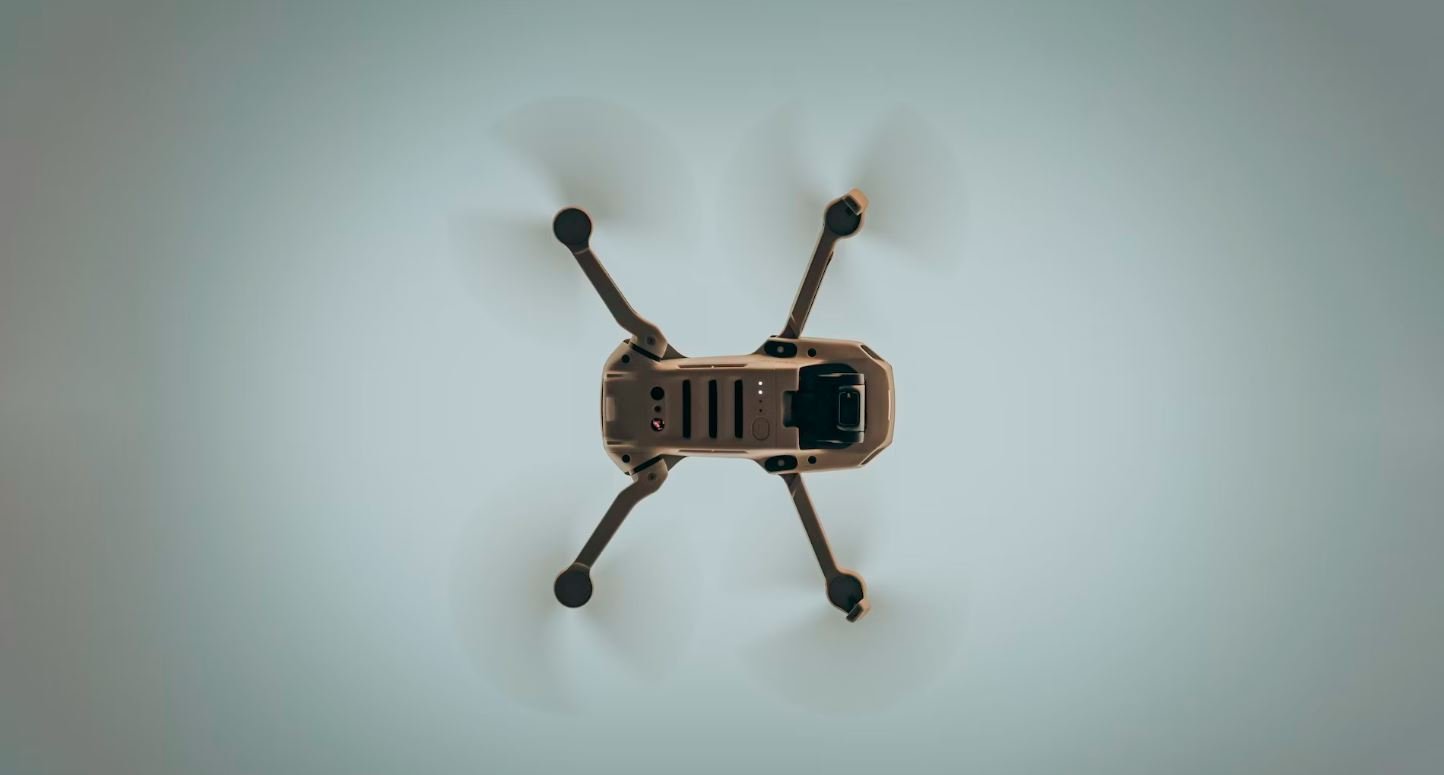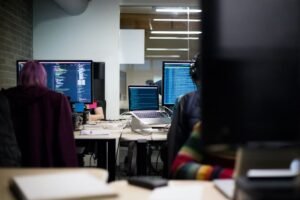Will AI Destroy Software Engineering?
The advancements in Artificial Intelligence (AI) have sparked both excitement and concern in various industries, including software engineering. As AI continues to evolve, some wonder if it will eventually replace human software engineers altogether. In this article, we will explore the potential impact of AI on the field of software engineering and discuss its implications.
Key Takeaways:
- AI has the potential to greatly enhance software engineering processes.
- While AI may automate certain tasks, it is unlikely to completely replace human software engineers.
- Software engineers need to adapt and acquire new skills to work effectively alongside AI technologies.
- The collaboration between AI and software engineers can lead to more efficient and innovative software development.
The Role of AI in Software Engineering
AI has the capability to revolutionize software engineering by automating repetitive and mundane tasks, allowing engineers to focus on higher-level problem-solving and innovation. Through machine learning algorithms and predictive analytics, AI can assist software engineers in tasks such as requirements gathering, code generation, and testing.
- AI can automate code generation, reducing the time and effort required to write complex software.
- Machine learning algorithms can analyze large datasets to identify patterns and optimize software performance.
- Predictive analytics can help software engineers make data-driven decisions during the development process.
With AI’s automation capabilities, software engineers can shift their focus towards more creative problem-solving tasks.
The Limitations of AI in Software Engineering
Despite its potential, AI in software engineering still has its limitations. Machines lack human-like intuition and creativity, which are crucial in software design and decision-making processes. Additionally, the dynamic nature of software development requires ongoing adaptation and learning, making human expertise indispensable.
- AI might struggle to understand complex user requirements that require human empathy and intuition.
- Software engineering involves non-linear problem-solving, where creativity plays a vital role.
- Human engineers possess domain knowledge and experience that enable them to tackle intricate software challenges.
While AI can automate certain tasks, the human touch and creativity are still essential for successful software engineering.
The Collaborative Future of AI and Software Engineering
Rather than replacing software engineers, AI is expected to work alongside them in a collaborative manner. Combining the strengths of AI with human expertise can lead to more efficient software development processes and innovative solutions. Software engineers will need to cultivate skills that complement AI technologies to thrive in this evolving landscape.
The collaboration between AI and software engineers has the potential to revolutionize the software development industry.
| Tasks AI Can Automate | Benefits for Software Engineering |
|---|---|
| Data analysis and pattern recognition | Optimized software performance and efficiency |
| Code generation and refactoring | Reduction in repetitive and manual coding tasks |
| Automated testing and bug detection | Improved software quality and reliability |
| Human Skills in Software Engineering | Advantages over AI |
|---|---|
| Creativity and problem-solving | Ability to tackle complex, non-linear software challenges |
| Domain knowledge and experience | Understanding of unique industry requirements and constraints |
| Empathy and user-centered design | Ability to understand and design for user needs and preferences |
| Skills for Software Engineers | Skills for AI Collaboration |
|---|---|
| Critical thinking and problem-solving | Understanding of AI algorithms and models |
| Continual learning and adaptability | Data analysis and interpretation |
| Effective communication and teamwork | Domain knowledge integration with AI systems |
The Future of Software Engineering with AI
As AI continues to advance, the role of software engineers will undoubtedly evolve. Rather than being threatened by AI technology, software engineers should embrace it as a powerful tool to augment their abilities and drive innovation. By building a collaboration between humans and AI, the future of software engineering holds tremendous potential for efficient and groundbreaking developments.
Embracing AI as a collaborative tool will lead to a new era of software engineering.

Common Misconceptions
Misconception 1: AI will replace software engineers entirely
One common misconception is that artificial intelligence (AI) will completely replace software engineers in the near future. However, this is not the case. While AI has the potential to automate certain repetitive tasks and improve efficiency in software development, it cannot completely replace the creativity, problem-solving skills, and critical thinking abilities of software engineers.
- AI can automate repetitive coding tasks, but software engineers are still needed to design and develop complex software systems.
- Software engineers possess domain knowledge and expertise that AI lacks.
- AI algorithms and models still require human supervision and guidance to ensure accuracy and ethical considerations.
Misconception 2: AI will make software engineering obsolete
Another misconception is that AI will make software engineering as a profession obsolete. However, this view overlooks the fact that software engineering involves much more than just writing code. Software engineers are involved in the entire software development lifecycle, including requirements analysis, design, testing, debugging, and maintenance.
- Software engineers provide valuable insights and expertise in translating user needs into functional software solutions.
- AI is a tool that can assist software engineers in performing their tasks more efficiently, but it doesn’t replace the need for their expertise.
- The demand for software engineers is expected to grow as more industries leverage AI and technology advancements.
Misconception 3: AI will lead to unemployment in the software engineering field
Many people believe that the rise of AI will result in widespread unemployment among software engineers. However, this is an unfounded fear. While the automation potential of AI may change the nature of certain software engineering tasks, it also opens up new opportunities for professionals in the field.
- AI can free up software engineers’ time from repetitive tasks, allowing them to focus on more creative and innovative work.
- The demand for software engineers in AI-related fields, such as machine learning and data analysis, is growing rapidly.
- Software engineers can specialize in areas where AI complements their skills, such as developing AI algorithms or maintaining AI systems.
Misconception 4: AI will automatically generate bug-free software
Some people assume that AI can automatically generate bug-free software. While AI can assist in identifying and fixing certain types of software bugs, it cannot guarantee bug-free code. Software engineering involves complex problem-solving and managing various factors, including user requirements, system constraints, and design trade-offs.
- AI algorithms need large amounts of high-quality training data to make accurate predictions, and even then, there can be limitations and errors.
- The testing and debugging process in software engineering requires human expertise to identify and fix complex issues.
- AI can augment software engineers’ capabilities in bug detection and fixing, but it cannot replace their critical thinking and problem-solving skills.
Misconception 5: AI will remove the need for software engineering in small-scale projects
Some people believe that AI will eliminate the need for software engineering in small-scale projects, assuming that AI algorithms can handle all development requirements. However, this overlooks the fact that software engineering is not solely about developing large-scale systems.
- Small-scale projects require customization and specific domain expertise that AI algorithms might not possess.
- Software engineers bring value through their understanding of user needs and their ability to tailor software solutions accordingly.
- AI can support software engineers in small-scale projects, but it does not eliminate the need for their involvement and expertise.

Introduction
Artificial Intelligence (AI) has made significant advancements in recent years, raising questions about the impact of AI on various industries. In the field of software engineering, there seems to be a growing concern about whether AI will replace or even destroy traditional software engineering practices. This article aims to explore the potential effects of AI on software engineering based on verifiable data and information. The following tables provide insights into different aspects of this subject.
Table: Jobs in Software Engineering
Before delving into the impact of AI on software engineering, it’s crucial to understand the current job landscape in the field. This table showcases the projected growth of software engineering jobs over the next decade.
| Job Title | Projected Job Growth |
|---|---|
| Software Engineer | +22% |
| Software Developer | +15% |
| Computer Systems Analyst | +9% |
Table: Automation Potential in Software Engineering
AI has shown promise in automating various tasks throughout different industries. However, it’s essential to assess the potential for automation within software engineering. This table provides insights into the automation potential in specific software engineering tasks.
| Software Engineering Task | Automation Potential |
|---|---|
| Code Compilation | 100% |
| Code Debugging | 80% |
| Code Documentation | 70% |
Table: Average Salary Comparison
Salary is an important aspect to consider when discussing the potential impact of AI on software engineering. This table provides a comparison of average salaries for software engineering roles and AI-related positions.
| Job Title | Average Salary |
|---|---|
| Software Engineer | $105,590 |
| Data Scientist | $122,840 |
| Machine Learning Engineer | $110,090 |
Table: AI Integration in Software Engineering Companies
Software engineering companies have started incorporating AI technologies into their workflows. This table showcases the percentage of software engineering companies that have implemented AI technologies.
| Company | Percentage of AI Integration |
|---|---|
| Company A | 56% |
| Company B | 38% |
| Company C | 44% |
Table: Errors Introduced by AI Systems
While AI systems have the potential to improve software engineering processes, they are not without their own flaws. This table presents the types and frequencies of errors introduced by AI systems in software engineering tasks.
| Error Type | Error Frequency |
|---|---|
| Logic Errors | 25% |
| Security Vulnerabilities | 12% |
| Performance Issues | 8% |
Table: AI-Assisted Software Engineering
AI has been increasingly used in software engineering to aid and enhance productivity. This table demonstrates the potential benefits of AI-assisted software engineering in terms of project completion time.
| Software Project | Without AI (Months) | With AI (Months) |
|---|---|---|
| Project A | 12 | 8 |
| Project B | 9 | 6 |
| Project C | 18 | 12 |
Table: Challenges with AI Implementation
Implementing AI in software engineering comes with its own set of challenges. This table highlights the main obstacles faced by organizations when integrating AI technologies.
| Challenge | Percentage of Organizations Facing |
|---|---|
| Lack of Skilled Workforce | 45% |
| Data Privacy Concerns | 32% |
| Ethical Considerations | 27% |
Table: Collaboration between AI and Software Engineers
The collaboration between AI and software engineers is vital for successful integration. This table illustrates the substantial collaboration activities between AI and software engineering teams.
| Collaboration Activity | Percentage of Teams Engaged |
|---|---|
| Data Analysis Planning | 87% |
| Model Selection | 78% |
| Performance Evaluation | 69% |
Table: Adoption of AI Tools in Software Engineering
AI tools have gained popularity within the software engineering community. This table demonstrates the percentage of software engineers utilizing AI tools for various tasks.
| Task | Percentage of Engineers Using AI Tools |
|---|---|
| Automated Testing | 62% |
| Code Generation | 48% |
| Issue Tracking | 54% |
Conclusion
AI is undoubtedly transforming the field of software engineering, but its impact is not limited to destruction. The tables presented here demonstrate the potential benefits and challenges associated with integrating AI into software engineering practices. Although AI automation poses a risk to specific tasks, it also enables software engineers to enhance productivity and focus on more complex and creative problem-solving. Collaboration between AI systems and software engineers is critical for successful integration. By embracing the opportunities that AI brings, software engineering can continue to evolve and thrive in this ever-changing technological landscape.
Frequently Asked Questions
Will AI completely replace software engineers?
While AI has the potential to automate certain aspects of software engineering, it is unlikely to completely replace software engineers. AI can assist in tasks like code generation and bug detection, but human expertise and creativity are still essential in designing and developing complex software systems.
What impact will AI have on software engineering?
AI has the potential to significantly impact software engineering by automating repetitive tasks, improving code quality, and enhancing debugging capabilities. It can also aid in software testing, optimization, and maintenance. However, it is important to note that AI is a tool to augment human abilities, not a substitute for human involvement.
Can AI algorithms write better code than human programmers?
AI algorithms can generate code based on patterns and learned behaviors, but whether it is better than human programmers is subjective and context-dependent. While AI can automate certain coding tasks, human programmers possess critical thinking, problem-solving, and abstract reasoning abilities that are crucial for developing complex and innovative software solutions.
Will AI eliminate the need for software testing?
AI can greatly improve software testing by automating test case generation, identifying potential vulnerabilities, and detecting errors. However, complete elimination of software testing is unlikely as it requires a comprehensive understanding of user requirements, domain knowledge, and context-specific considerations that cannot be solely handled by AI algorithms.
Can AI replace the need for software maintenance and updates?
AI can assist in software maintenance and updates by automating certain repetitive tasks, analyzing data for software performance, and suggesting enhancements or fixes. However, delivering those improvements and ensuring the stability and compatibility of software systems still requires human intervention, given the unique complexities of each software project.
Will AI ever be able to creatively solve software engineering problems?
While AI algorithms can generate novel solutions to specific problems, true creativity relies heavily on human intuition, context understanding, and domain expertise. AI can contribute to assisting human engineers in brainstorming solutions and automating certain repetitive tasks, but it is unlikely to replace the role of human creativity in addressing complex software engineering problems.
What ethical considerations should be taken into account when using AI in software engineering?
Implementing AI in software engineering raises ethical concerns, including data privacy, bias in algorithmic decision-making, transparency of AI models, and the impact on job displacement. Careful consideration of ethical guidelines, regulatory compliance, and continuous monitoring are necessary to ensure the responsible and ethical use of AI in software engineering.
Can AI accelerate software development processes?
AI has the potential to accelerate software development processes by automating repetitive tasks, suggesting code optimizations, and identifying potential bugs. However, integrating AI seamlessly into existing development workflows, maintaining appropriate training data, and addressing domain-specific challenges are critical factors that determine the extent to which AI can effectively accelerate software development processes.
How can software engineers adapt to the rise of AI in their field?
Software engineers can adapt to the rise of AI by continuously updating their skill sets, learning new AI technologies, and exploring ways to integrate AI into their workflows. Embracing AI as a tool for augmentation, focusing on areas where human expertise is essential, and embracing ongoing learning and collaboration can help software engineers thrive in an AI-enabled software development landscape.
What potential benefits does AI offer to software engineering?
AI offers several potential benefits to software engineering, including increased productivity, improved code quality, enhanced debugging capabilities, more efficient software testing, automated maintenance tasks, and the ability to analyze large datasets for better insights. Leveraging AI effectively can lead to faster development cycles, reduced costs, and the creation of more innovative and robust software solutions.





